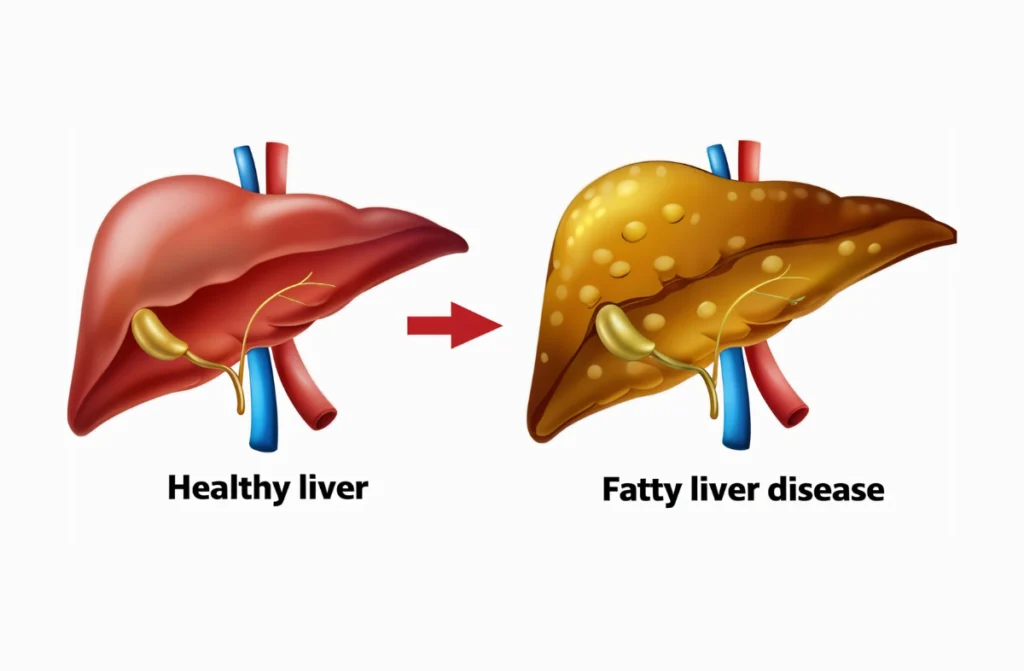Fatty Liver While Pregnant, also known as Acute Fatty Liver of Pregnancy (AFLP), is a rare yet serious complication that occurs during pregnancy. It often develops in the third trimester and can significantly impact both the mother and baby. If left untreated, AFLP can lead to severe outcomes. Proper liver support is vital to maintaining overall health and ensuring the liver can handle the extra strain.

What is Acute Fatty Liver of Pregnancy?
Acute Fatty Liver of Pregnancy (AFLP) is a rare condition where fat builds up in the liver, leading to inflammation and liver dysfunction. It typically occurs in the later stages of pregnancy. Fatty Liver While Pregnant requires immediate medical intervention to protect the health of both mother and baby. Early diagnosis is crucial for a positive outcome.
How Common is Acute Fatty Liver of Pregnancy?
Fatty Liver While Pregnant is a rare condition, affecting about 1 in 7,000 to 1 in 20,000 pregnancies. Although uncommon, it is considered a medical emergency due to its potential severity. Advances in medical care have improved detection and outcomes, but prompt diagnosis is critical.
Symptoms and Causes
What are the Symptoms of Acute Fatty Liver of Pregnancy?
Symptoms can appear suddenly and may include:
- Severe nausea and vomiting
- Fatigue and weakness
- Pain in the upper right abdomen
- Yellowing of the skin and eyes (jaundice)
- Confusion or difficulty concentrating
These symptoms suggest the liver is inflamed or damaged. Liver support during pregnancy, such as regular check-ups, can help identify these signs early.
What is the Cause of Acute Fatty Liver of Pregnancy?
AFLP is believed to be linked to genetic factors or metabolic issues affecting how the body processes fats. When fat metabolism is disrupted, it accumulates in the liver, leading to inflammation. Fatty Liver While Pregnant is also more likely if there is a family history of similar conditions.
Risk Factors of AFLP
Certain factors increase the likelihood of developing AFLP:
- First pregnancies
- Carrying multiple babies (twins or triplets)
- Obesity or pre-existing liver conditions
- Genetic predisposition to fatty acid metabolism disorders
- History of Fatty Liver While Pregnant
Knowing these risk factors can help you and your doctor plan liver support during pregnancy to lower the risks.
Complications
If untreated, Fatty Liver While Pregnant can lead to:
- Liver or kidney failure
- Severe bleeding or clotting disorders
- Preterm delivery
- Complications for the baby, such as low birth weight or respiratory issues
Addressing symptoms early and ensuring liver support during pregnancy can help avoid these outcomes.
Diagnosis and Tests
How is Acute Fatty Liver of Pregnancy Diagnosed?
Diagnosis involves blood tests to check liver function, imaging to detect fat in the liver, and assessing symptoms. Doctors may use a liver biopsy if the diagnosis is unclear. Recognizing Fatty Liver While Pregnant early ensures better outcomes for both mother and baby. Regular prenatal check-ups are essential for liver support and timely diagnosis.
Treatment
Treatment for Fatty Liver While Pregnant focuses on stabilizing the mother and delivering the baby safely. This may include:
- Immediate delivery, regardless of gestational age
- Supportive care for liver and kidney function
- Monitoring in a high-risk pregnancy unit
Early intervention can prevent severe complications.
Prevention
While AFLP is not always preventable, you can take steps to reduce risks:
- Maintain a healthy weight before and during pregnancy
- Manage existing conditions like diabetes or obesity
- Attend regular prenatal check-ups
- Discuss any family history of liver conditions with your liver doctors
Being proactive about liver support during pregnancy can help detect potential issues early.
Outlook / Prognosis
With early diagnosis and treatment, most women recover fully from Fatty Liver While Pregnant. However, close monitoring is necessary during recovery. Ensuring liver support and postpartum is crucial to avoiding long-term complications.
Conclusion
Fatty Liver While Pregnant is a rare but serious condition that demands attention. By understanding its symptoms, causes, and treatment options, you can take proactive steps to protect yourself and your baby. Liver supports, regular check-ups, and prompt medical care are essential in managing this condition. If you experience symptoms like an enlarged liver during pregnancy or inflamed liver during pregnancy, seek medical advice immediately. Early action can make all the difference for a safe and healthy pregnancy.
